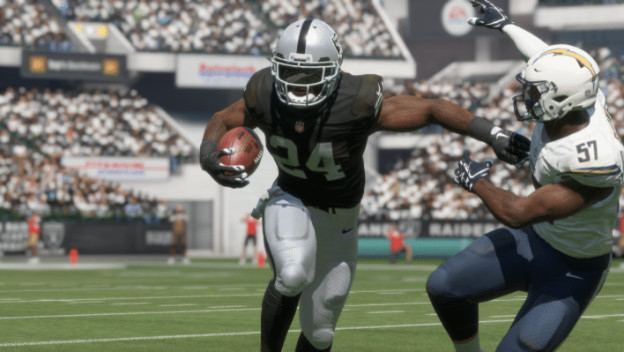If there is one thing you can count on in the gaming world, it is that there will always be yearly iterations of sports games. There will always be a current NBA 2K, WWE 2K, Pro Evolution Soccer, Madden, FIFA, and NHL game on store shelves. Things like roster changes, updated game modes, new announcers, stadium adjustments, and other things all make each one slightly different. This can also mean the previous year becomes obsolete, unless the story mode was exceptionally stunning. But this might not be the case forever, and that might be a good thing.
See, EA is all about that constant revenue stream. It keeps talking about games as a service. Recently, Andrew Wilson, EA’s CEO, told Bloomberg in an interview that the company would eventually like to have EA Sports game follow the games as a service model. The infrastructure isn’t there yet worldwide, but is starting to resemble that in China and Korea. But the thing about sports games as a service model is, if done right, it doesn’t just earn companies like EA more money for a smaller investment. It could also really benefit everyone who loves these games.
Even though games as a service can bring up some negative connotations regarding potential investment into such titles, there could be positives too. With sports games, people are kicking in about $60 a year, before DLC and microtransactions. Let’s say they go to a model where there is a major release every three or five years, with incremental updates in between. These updates could cover roster changes, add new announcers, provide more arenas, adjust rules, and maybe provide new chapters or sagas for story modes. If there are minor bug fixes or rule adjustments, those could be free DLC. The other options could be paid.
Considering how much people love these games, they would probably be rather likely to spend $20-30 on new content for a game they already have. And it would be much easier to have progress carry over instead of starting over. You could have dynasties! Some of these sports games have extensive simulation options. Imagine if instead of covering a hypothetical 5-10 year period in one game, you could maintain a fantasy team for years? That would be incredible if there were constant incremental updates that let you keep a legacy alive. Lifespans for each title would be expanded.

There is also an ecological element to consider. All these materials go into making these physical, yearly iterations. Then, when you go to a game store a year or two later, they become clutter. They do not retain value the way other games do. Instead, a five year old version of Madden is very likely as in-demand as one of those AOL installation discs. It is a lot of waste, and it would be better for the environment to go to an option where, say, every three or five years a new base game is released both digitally and physically, with updates that bring it up to speed in-between.
Sports games are among the most disposable games out there. It is a constant revolving door. Wouldn’t it actually be better if they moved to a games as a service model? It would let people carry over their progress more than usual, extending lifespans. It would very likely save people money. It would probably even be better for the environment. Maybe there are instances where it is okay when games alter their formula to become more of a service than a one time investment.
